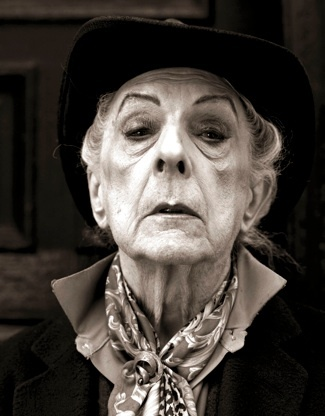Quentin Crisp the Naked Civil Servant, died 20 years ago this month at the ripe old age of 90. If you weren’t around at the time it is hard to imagine the impact that he had on mainstream society when The Naked Civil Servant was released in the mid 1970s starring John Hurt and Quentin Crisp, turning both into stars.
I remember seeing this elaborately coiffed and dressed man on chat shows as a teenager and being captivated by his barbed wit, courage and appearance. Born Denis Pratt, he came from a middle class suburban background and was effeminate as a child. Before the war, he was a regular in Soho cafes where he met other gay men, rent boys and his appearance (make up, long red hair, painted nails) brought a combination of hostility, violence, curiosity and some admiration.
When War came, he wanted to sign up but was rejected because he was “suffering from sexual perversion”. He stayed in London during the War, picked up GIs and worked as a life model (which he did for the next 30 years) and wrote the Naked Civil Servant in 1968. For most of his life, homosexuality was of course a crime.
His visibility increased during the 1970s and 1980s doing one man shows, writing and acting. His comments were often provocative, witty and sometimes controversial. He played Elizabeth 1 in the excellent film Orlando, and appeared in Philadelphia and To Wong Foo, Thanks for Everything during the early 1990s. Sting dedicated his song “Englishman in New York” to Quentin Crisp - “It takes a man to suffer ignorance and smile, Be yourself no matter what they say”.
His influence on society and attitudes towards sexuality over the last 40 years is significant and includes film, TV, literature, art, music and theatre. A sequel to “The Naked Civil Servant” was made 10 years ago with John Hurt returning to play Crisp in later years in Manhattan.
One of my favourite Crisp quotes (and I remember the scene from the original production) was when he was living in his London bedsit where he never did any housework:
“after the first four years the dirt doesn’t get any worse”.
Quentin Crisp was many things – an icon, pioneer, courageous, controversial – his flamboyance ignited the second quarter of the 20th Century and paved the way for today’s more tolerant, accepting and colourful world.
Responses


A fascinating, witty, genteel man, who sometimes loved to shock.